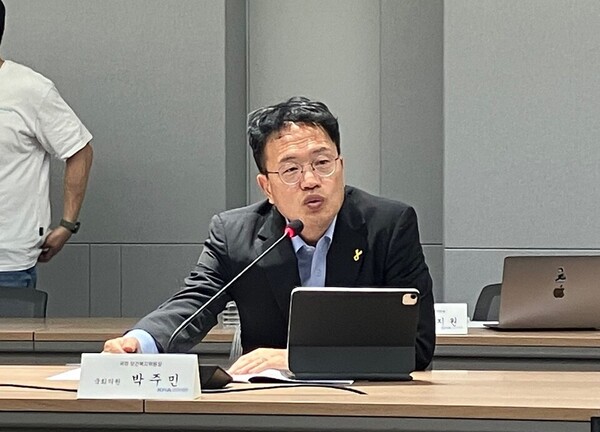Responding to critics who see the follow-up to the return of medical students as “preferential academic flexibility,” the ruling Democratic Party of Korea (DPK) emphasized that it should be seen as "normalization" of medical education.
“The continuous discussions that led to the declaration of the return of medical students are an achievement of the Lee Jae Myung administration, which resolved the issue through dialogue and compromise, and an important first step toward reviving Korean healthcare,” said Rep. Park Ju-min, a DPK lawmaker who chairs the National Assembly's Health and Welfare Committee, on his Facebook on Tuesday.

The return of medical students is not just a matter of students returning to school, Park said. This year, only 269 students passed the national medical examination. Considering that it takes at least 10 years to train a single doctor, the gap will inevitably cost the country in the future, he added.
"July is the last chance (for medical students to return),” Park said. “If this deadline is missed, the ‘tripling’ situation will become a reality, in which medical students of three classes (2024, 2025, and 2026) will be crowded together, making it more difficult to practice and train normally.”
The ruling party politician also made it clear that the return of medical students is not a matter of “preferential academic flexibility,” such as a shorter academic year or fewer courses. The government and its party plan to normalize medical education based on the principle of not reducing the total quantity and quality of education. They also plan to take protective measures to ensure that medical students who have already returned to school are not disadvantaged, according to Park.
“We are aware of the concerns that the return of medical students may be a form of preferential treatment,” Park said. “Medical school professors, deans, and students have said that they will fully utilize vacations, seasonal semesters, and weekend and night classes to ensure a full physical workweek and clinical practice time. It is a principle that medical students have set for themselves and a promise that they will never reduce the total quantity and quality of education, so that ‘unsafe doctors’ will not be produced.”
The governing camp will take thorough measures to ensure that students who have already returned to work do not experience any disadvantages or anxiety, Park said. All of this is driven by the sincere and heavy responsibility to protect the precious lives and health of every citizen. Medical students are advised to fulfill the same responsibility as prospective healthcare providers, he added.
Now is the time for healing. Starting with the return of medical students, we will stop the collapse of the medical system and move forward on the path of medical normalization,” Park said. “Along with the Lee Jae Myung government, the ruling party will also do its best to expand public, essential, and regional medical care, fully communicate with the medical community, and rebuild the real Korean medical system. I also ask the people to join forces for our efforts."
Related articles
- Doctors' group thanks President Lee as government-doctor relations begin to thaw
- President Lee instructs education ministry to follow up on medical students’ return to school
- Patients call for swift legislation to prevent void of essential care
- Leader of medical students' group defends students' return
- Health ministry unveils detailed steps to improve anatomy education system
- Despite a thaw in conflict, essential departments worry about lack of trainee doctors
- University presidents decide to allow failing medical students to return in the second semester
- Med school deans struggle to align graduation timeline as students return

